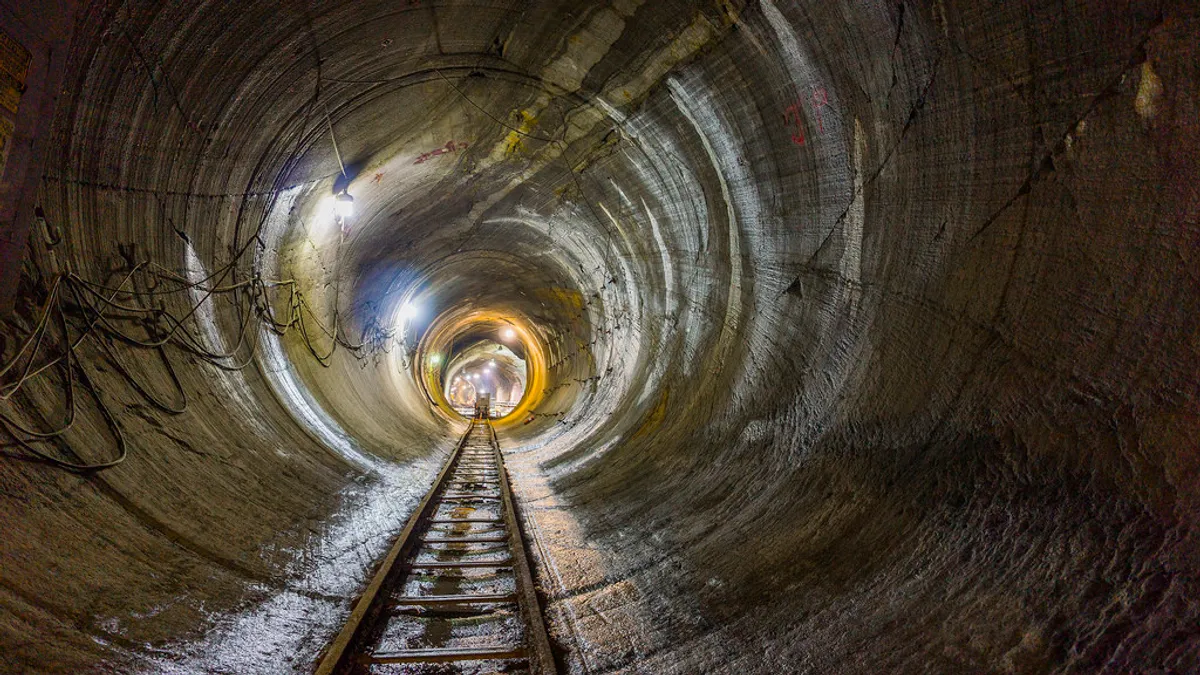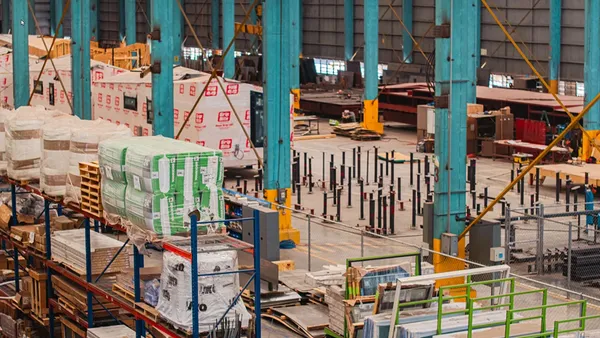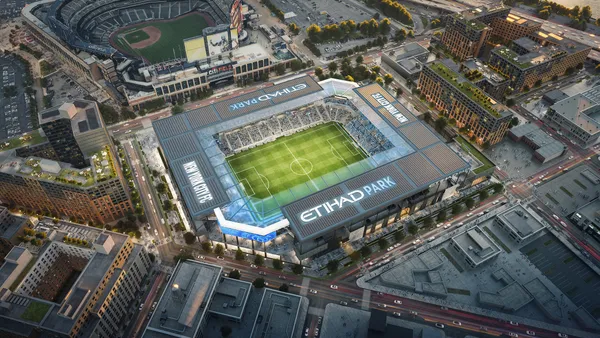Dive Brief:
- New York City Mayor Bill de Blasio’s administration has announced a new initiative that it says will help control costs and reduce the schedule time of capital projects undertaken by the city’s Department of Design and Construction.
- "A Strategic Blueprint for Construction Excellence,” formulated by the DDC, will see the modernization and streamlining of the procurement process; advocate for expanded use of design-build contracts; and explore alternative delivery methods like construction manager-build and construction manager at risk while pursuing the necessary insurance reforms; expedite change order approval and payment; speed up a project’s initial review time; minimize scope-of-work changes through better planning; coordinate with utility companies to avoid utility-related delays; advocate for better support for DDC project managers; initiate technology upgrades; and increase community outreach.
- The DDC has completed $20 billion of construction work in New York City since 1996. Its two divisions, infrastructure and buildings, are responsible for a wide variety of projects including water and sewer system upgrades, public plazas, coastal protection, public services buildings, homeless shelters, museums and theaters.
Dive Insight:
New York City, according to a report from The New York Times, has the most expensive subway construction costs of any metro in the world, at up to seven times that of comparable projects in other countries. The city, Crain’s New York Business reported, counts among its most off-track projects a 400-square-foot bathroom that reportedly took $2 million and eight years to build.
The DDC was not in charge of that project, but, according to other reports, the department currently spends about double the price per square foot of what the private sector spends to build new office space and is behind schedule on almost half of its large projects.
Last year, the Metropolitan Transportation Authority also promised to tighten up its procurement and construction procedures, particularly since it wants more than $40 billion during the next 15 years to build new projects. The authority’s commissioners promised to reduce project timelines by 53%. Doing so would likely get rid of the 25% “MTA fee” some contractors tack onto the price of a project to make up for the costly delays they say come with doing business with the authority.
Another target in the battle against high costs of construction in New York City is the state’s scaffold law, which can add around 10% to a project’s budget, according to critics of the regulation. The law makes employers and owners 100% liable for falls, which industry groups, like the General Contractors Association of New York, argue can significantly increase insurance costs.














